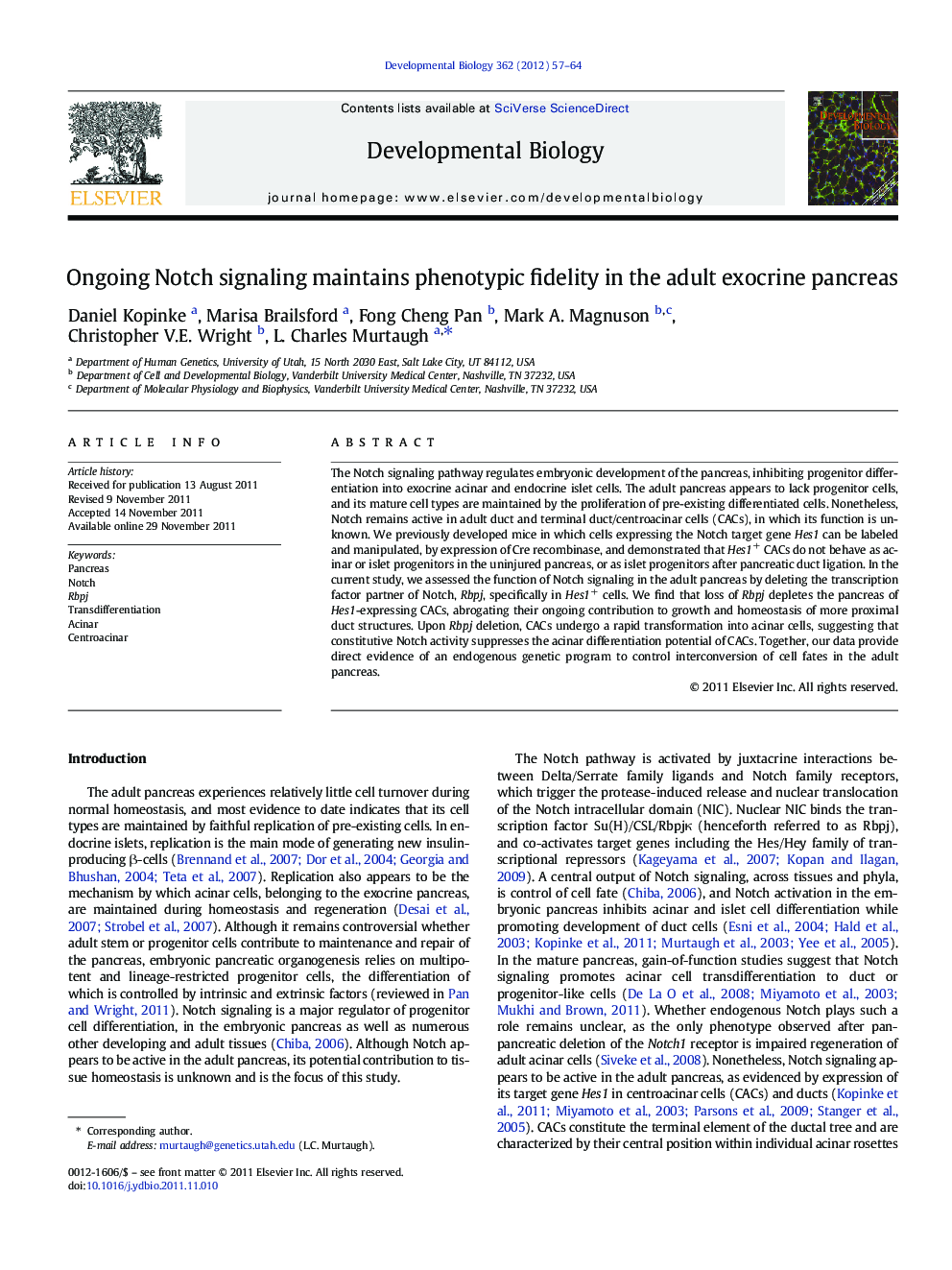| Article ID | Journal | Published Year | Pages | File Type |
|---|---|---|---|---|
| 2173403 | Developmental Biology | 2012 | 8 Pages |
The Notch signaling pathway regulates embryonic development of the pancreas, inhibiting progenitor differentiation into exocrine acinar and endocrine islet cells. The adult pancreas appears to lack progenitor cells, and its mature cell types are maintained by the proliferation of pre-existing differentiated cells. Nonetheless, Notch remains active in adult duct and terminal duct/centroacinar cells (CACs), in which its function is unknown. We previously developed mice in which cells expressing the Notch target gene Hes1 can be labeled and manipulated, by expression of Cre recombinase, and demonstrated that Hes1+ CACs do not behave as acinar or islet progenitors in the uninjured pancreas, or as islet progenitors after pancreatic duct ligation. In the current study, we assessed the function of Notch signaling in the adult pancreas by deleting the transcription factor partner of Notch, Rbpj, specifically in Hes1+ cells. We find that loss of Rbpj depletes the pancreas of Hes1-expressing CACs, abrogating their ongoing contribution to growth and homeostasis of more proximal duct structures. Upon Rbpj deletion, CACs undergo a rapid transformation into acinar cells, suggesting that constitutive Notch activity suppresses the acinar differentiation potential of CACs. Together, our data provide direct evidence of an endogenous genetic program to control interconversion of cell fates in the adult pancreas.
► Notch is required for expansion of adult pancreatic ducts. ► Notch-deficient centroacinar cells do not give rise to endocrine cells. ► Endogenous Notch signaling prevents centroacinar-to-acinar cell differentiation in adult pancreas.
